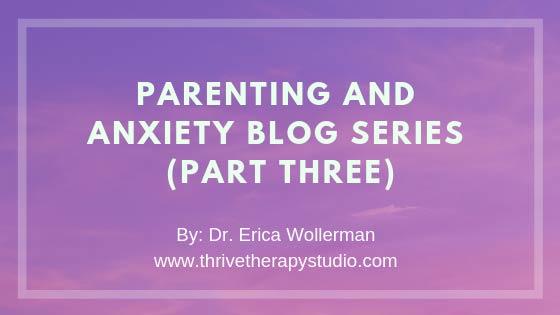I can completely relate to why parents want to control their children’s lives. Modern culture tells us, pretty much daily, that the world out there is scary, more competitive than ever, and that resources are scarce. Parents genuinely care about and love their children and just want to give them the very best chance to be successful in this world. So, they often work very hard to help them develop all the skills they might need to be successful and accidentally avoid having their child learn tough lessons along the way. What starts as bringing a forgotten lunch to school becomes bringing homework, which then can even become doing homework. Even worse is that as kids get older, doing homework can become applying to college for them or even applying to jobs for them.
One challenge I see is that we don’t really want to accept that we actually have very little control over our own lives, let alone our kids’ lives and futures. We love to believe we can make sure our kids will be okay and the truth is, we can’t. There are no guarantees in this world and I find this to be something incredibly difficult for many people to accept, especially when it comes to the wellbeing of their children.
Underneath this hope that we as parents can “curate” our child to be all the kinds of success we hope for, is a more subtle form of avoidance. Essentially, by believing we are responsible for everything our child will do in their lives, we avoid feeling anxious about their outcomes. Control is often a mechanism of anxiety management and relinquishing control and acknowledging just how little we do control in our lives, especially as parents, is incredibly uncomfortable.
Another challenge is that if we let our children grow accustomed to us rescuing them all the time, they don’t learn how to rescue themselves and as time goes on, the potential consequences get much bigger and more problematic. A forgotten lunch is a pretty easy problem to solve but getting kicked out of college is pretty tough to recover from. This is why I often advocate for parents starting early with setting boundaries and helping their child(ren) learn to tolerate, face, embrace, and recover from failures they may experience. We can support them along the way, but we need to do better at letting them find their own solutions.
So where does this leave us? As parents, I think it is important to recognize our own experience and notice if we are feeling anxious about our child’s future and how that might impact our parenting approach. We need to consider what our child’s needs actually are and how we can help them develop more skills and resilience without obsessing about it and feeling that it is our responsibility.We can stop taking all the accountability for how our child’s lives turn out and let them make more choices that lead to different outcomes, positive and negative. Most of all though, we can learn to surrender to the uncertainty of parenting and our world and accept that while we can’t control a lot, we can always work to control how we handle things and react.
Reach out to start
your healing journey


